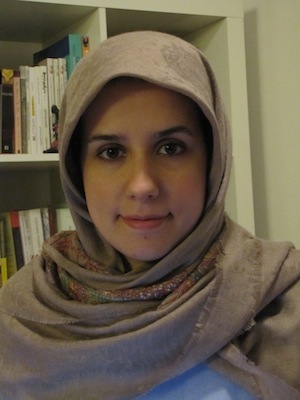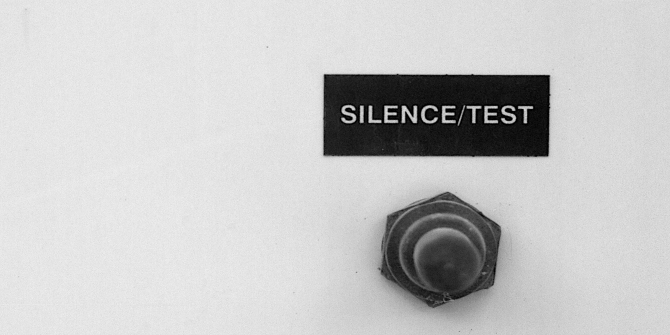 Most discussions of oral history method are rooted in abstract ideas about what interviewing should be and should achieve. However, interviews are ultimately personal interactions between human beings, and rarely conform to a methodological ideal. The struggles interviewers face while conducting interviews mostly go unacknowledged, and this collection aims to show that a full account of oral history methodology must include honest and rigorous analyses of actual practice, allowing us to embrace the uncertainties that define a human-centered methodology. Nafiseh Sharifi is impressed with this collection and recommends it to students and practitioners of oral history.
Most discussions of oral history method are rooted in abstract ideas about what interviewing should be and should achieve. However, interviews are ultimately personal interactions between human beings, and rarely conform to a methodological ideal. The struggles interviewers face while conducting interviews mostly go unacknowledged, and this collection aims to show that a full account of oral history methodology must include honest and rigorous analyses of actual practice, allowing us to embrace the uncertainties that define a human-centered methodology. Nafiseh Sharifi is impressed with this collection and recommends it to students and practitioners of oral history.
 Oral History off the Record: Toward an Ethnography of Practice. Anna Sheftel and Stacey Zembrzycki (eds.). Palgrave Macmillan. October 2013.
Oral History off the Record: Toward an Ethnography of Practice. Anna Sheftel and Stacey Zembrzycki (eds.). Palgrave Macmillan. October 2013.
‘Each interview, regardless of how many we conduct, can be daunting. Every one requires a tremendous amount of time, patience, energy, work and thoughtfulness. […] Nevertheless we gain new insights the more we hone our skills as listeners.’
Oral History off the Record: Toward an Ethnography of Practice is a collection of insightful accounts of oral history interview experiences, written by some of the most well-known practitioners in the field. In contrast with the prevailing literature in which oral history is discussed in a conceptual framework as a research methodology and theoretical approach, this collection aims to ‘demystify oral history’ by showing how all practitioners share the same concerns each and every time they undertake an interview. In addition to filling this gap in the literature, the editors believe that sharing interview experiences is a helpful way of learning how to do oral history, and how to do it well.
According to the editors, Anna Sheftel and Stacey Zembrzycki, ‘off the record’ refers to informal conversations that oral historians have about the ‘complex, capricious nature’ of oral history fieldwork. These conversations are rarely written up in journal articles or shared online, but cover the most challenging ethical, political, and personal aspects of interviewing. In 2011 Sheftel and Zembrzycki held an interdisciplinary workshop around this idea, and discussed with researchers topics and questions such as ‘how do our identities shape the stories that we hear? What are the burdens that we take on when we listen? Can we like our interviewees? How do we select whom we write about and how [does] this selection affect our scholarship?’ Scholars from a variety of disciplines and research backgrounds continue these debates across the four sections of this book by sharing their own experiences of interview difficulties and their approaches to overcoming these challenges.
In the first chapter Sherna Berger Gluck describes her fieldwork experiences from the early days of starting her research on women’s activist groups in the village of Kufr Nameh in Palestine. She shares how the changing political context in Palestine between 1989 and 1994 affected her position as a Jewish-American amongst the community and how it shaped her relationships with her interviewees. She raises ethical questions about the issue of authority and how our decisions about what to ask and what to publish can affect the image of our interviewees, the information that we reveal, and the history that we make. In addition, she emphasises that interviews should accompanied with more ethnographic fieldwork practices in order to deepen our understanding of the narrators. Although as a researcher she had learnt that life history interviews should be conducted in a quite place with as few distractions as possible, during her visit to Palestine she realised that it is the narrator’s condition that defines the process.
The collective nature of her interviews in Kufr Nameh also made Gluck question what she learnt about oral history as an individual process. She concludes that it is better to do collective interviews when studying people who are part of the same movement. Gluck details that one of the most important lessons that she learnt was to ‘go with the flow’ and to prepare herself for conducting interviews even in the most chaotic situations.

The third part of the book raises issues around positionality of researchers and how it affects both the interviewees’ stories and their representation in the final work. For example, Pamela Sugiman discusses how, after her research was published, she was criticised by an interviewee who felt that the groups being studied by Sugimen were not adequately represented in the research. Lois, a Japanese woman, criticised Sugiman’s work for being unrepresentative of the second generation of Japanese-Canadian women that she claimed to study. Sugiman reveals her complicated feelings towards her interviewees; she writes that it was especially difficult for her as Lois’s story challenged Sugiman’s political stance against the government’s actions during the resettlement of Japanese-Canadian after the World War II. She describes how Lois forced her to listen and consider an interpretation of history that was inconsistent with her own. Afterwards she decided to publish Lois’s story because as oral historians we must value personal memory and we can not exclude stories that are in contradiction with our own thinking or with what we consider as historical truth. She argues that ‘deep listening and inclusiveness’ should be at the heart of oral history.
In conclusion, the essays in this collection reflect on those sensitive, uncomfortable and sometimes daunting moments in interviews that are usually left unmentioned. They show that the required skills of openness and patience can be gained only through practice and conscious critical evaluation of what we learn in theory. I found the essays wise and constructive in presenting the political, ethical and personal challenges that researchers face in interactions with subjects of their studies. The book can be of interest to both students and practitioners of oral history but also to those who are applying similar qualitative methods for collecting data in other disciplines.
———————————————
Nafiseh Sharifi is a PhD candidate at the Centre for Gender Studies at the School of Oriental and African Studies, University of London. For her thesis Nafiseh is working on personal experiences of body and sexuality amongst different generations of Iranian women. Her research interests include gender and sexuality in Iran, sexual politics in Muslim societies, and women’s narratives of embodiment. Read more reviews by Nafiseh.







